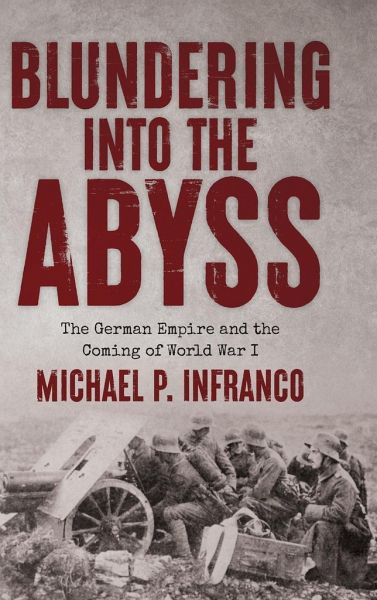
Blundering into the Abyss
The German Empire and the Coming of World War I

PAYBACK Punkte
13 °P sammeln!
Rise and Fall of the German Empire: From Bismarck's Peaceful Reign to Wilhelm II's Erratic Leadership and the Cataclysm of World War I Blundering into the Abyss: The German Empire and the Coming of World War I is a riveting exploration of the birth, growth, and eventual downfall of the German Empire. The narrative begins in 1871, following Prussia's triumph over France, which led to the unification of Germany. This birth of a new nation-state in Europe's heartland, boasting remarkable industrial and human potential, is meticulously detailed. At the helm of this emerging power was Otto von Bism...
Rise and Fall of the German Empire: From Bismarck's Peaceful Reign to Wilhelm II's Erratic Leadership and the Cataclysm of World War I Blundering into the Abyss: The German Empire and the Coming of World War I is a riveting exploration of the birth, growth, and eventual downfall of the German Empire. The narrative begins in 1871, following Prussia's triumph over France, which led to the unification of Germany. This birth of a new nation-state in Europe's heartland, boasting remarkable industrial and human potential, is meticulously detailed. At the helm of this emerging power was Otto von Bismarck, the Iron Chancellor, who skillfully navigated a complex treaty system to maintain peace and foster internal development. However, the book also delves into the post-Bismarck era, where German statesmen struggled to replicate his adeptness in foreign affairs. The narrative takes a dramatic turn with the ascension of Kaiser Wilhelm II, whose new direction for German foreign policy was marked by colonial and military expansion. This period is characterized by the Kaiser's unpredictable and prideful demeanor, using foreign policy as a tool to manipulate other nations. As Germany was increasingly viewed as a threat to the European order, its alliance with the unstable Austria-Hungary led it into a devastating war in August 1914. The book provides a detailed account of World War I, a brutal conflict where outdated tactics were pitted against modern, powerful weaponry. Europe became a killing field, and Germany's questionable strategy further emphasized the futility of warring against nations with a significant attritional advantage. The narrative concludes with the collapse of the German Empire and the overthrow of its monarchy. This book offers a comprehensive and engaging account of a significant period in European history. It is a must-read for those interested in political statesmanship and military history, providing a deep understanding of the dynamics that led to the rise and fall of the German Empire.














